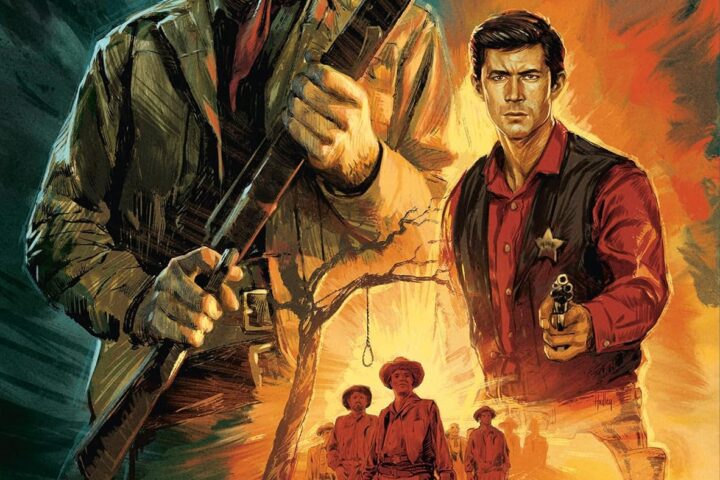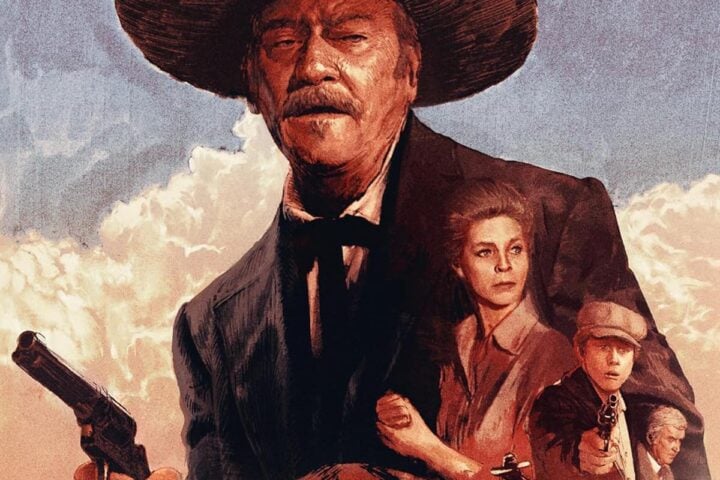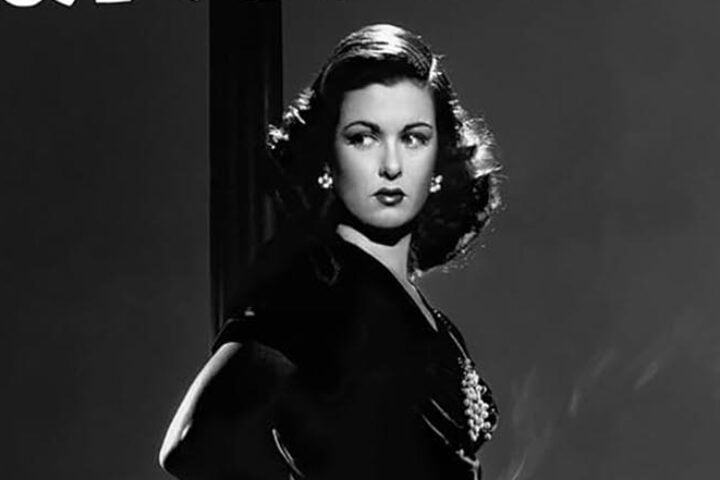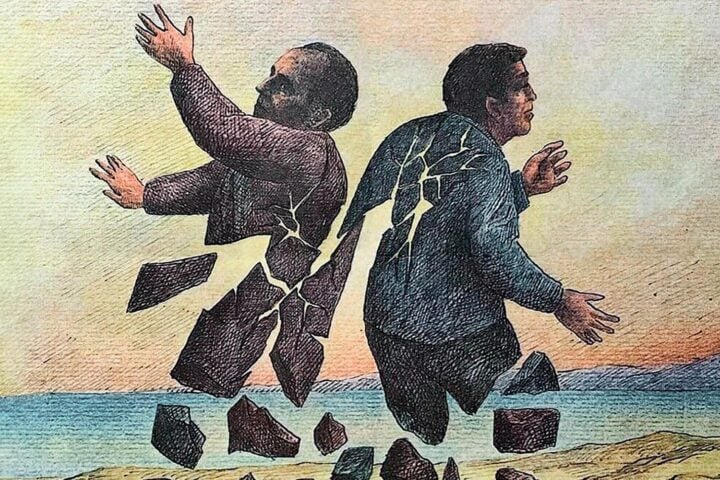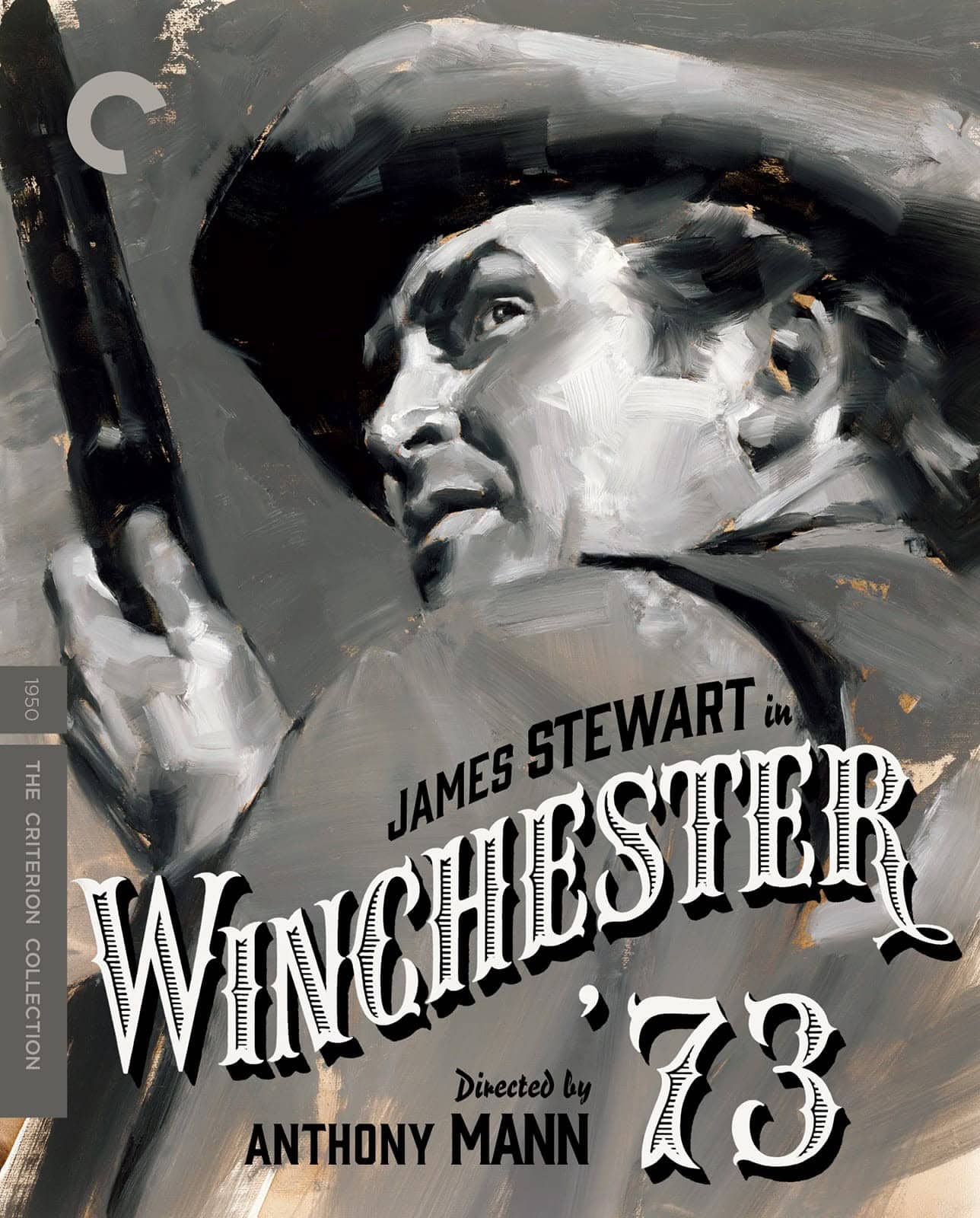 Anthony Mann came to prominence in the 1940s as a maker of some of the bleakest, most socially acidic noirs from the genre’s heyday. In films like Raw Deal and T-Men, he forged a style that balanced ornate compositions with docudrama immediacy, making his work feel at once raw and epic. But the filmmaker would go on surpass himself when he began to make westerns. Fortuitously paired with James Stewart, who was entering into middle age and willing to push beyond his squeaky-clean image, Mann opened a new chapter of his career with Winchester ’73, the first of a number of golden-age westerns that presented a vision of frontier morality so caustic that only a handful of the so-called revisionist westerns to emerge in the ’60s and beyond could match their frank social critique.
Anthony Mann came to prominence in the 1940s as a maker of some of the bleakest, most socially acidic noirs from the genre’s heyday. In films like Raw Deal and T-Men, he forged a style that balanced ornate compositions with docudrama immediacy, making his work feel at once raw and epic. But the filmmaker would go on surpass himself when he began to make westerns. Fortuitously paired with James Stewart, who was entering into middle age and willing to push beyond his squeaky-clean image, Mann opened a new chapter of his career with Winchester ’73, the first of a number of golden-age westerns that presented a vision of frontier morality so caustic that only a handful of the so-called revisionist westerns to emerge in the ’60s and beyond could match their frank social critique.
As the opening text explains, the film’s title is a dedication to the Winchester Model 1873, “the gun that won the West.” The film follows Lin McAdam (Stewart) and Frankie “High Spade” Wilson (Millard Mitchell) as they enter Dodge City on the hunt for an outlaw named Dutch (Stephen McNally). Lin instinctively knows his quarry will be near, as the town is holding a shooting contest to win a Winchester, one of only 1,000 in existence at the time. Though Dodge City presents a charming façade—complete with a pre-Tombstone Wyatt Earp (Will Geer) presented as an avuncular, almost folksy authority figure—Lin can scarcely keep the tension and rage at the thought of Dutch, less so when the man indeed turns up in the local saloon.
Dutch soon steals the rifle and lights out of town, but not before we get a few pointed hints at a shared past between the crook and Lin. At this point, the film splits into two parallel stories, one depicting Lin’s ongoing pursuit of Dutch, the other crafting a symbolic narrative of the Winchester rifle and the ruin that it leads to. The former is easy enough to grasp, with Stewart letting more and more loathing and single-mindedness etch Lin’s face with taut menace. Through it all, William H. Daniels’s cinematography renders both location shots and soundstage backdrops as equally flat, compressing the West into a hollow, suffocating artifice pressing ever tighter around the protagonist as he reveals more of his history with Dutch.
More fascinating, though, is the narrative momentum that builds around the rifle as it begins to exchange hands via every kind of subterfuge. It’s gambled away, taken off a fresh corpse, swindled in cons, and just plain stolen with good, old-fashioned intimidation. Quickly, a subtext emerges: If this really is “the gun that won the West,” the Winchester comes to symbolize the lawless, rapacious greed that defines even the most romantic notions of the Wild West and frontier spirit. After a time, Lin’s quest for revenge against Dutch starts to feel quaint in the face of the larger implications of the rifle’s journey, which implicates far more than any one man.
The two stories collide in the final act, by which time the rifle seems less than worthless, and the full extent of Lin’s connection to Dutch has rendered the former’s quest for revenge as a Greek tragedy of the vagaries of fate. By that point, most of the characters we’ve met along the way are long dead, and the ones who aren’t have such a level-headed understanding of the odds of survival that a seeming damsel in distress (Shelley Winters) has already made pointed reference to the value of saving one bullet for yourself in any ambush. Winchester ’73 may end with a swell of triumphant music, but its parting close-up of the rifle back in the hands of the ostensible hero is a final reminder of the meaningless of victory in a realm like this.
Image/Sound
The 4K digital restoration of Winchester ’73 on the Criterion Collection’s disc, undertaken by Universal Pictures in collaboration with the Film Foundation, renders the film’s sunlit whites, shadowy interior blacks, and medium-contrast grays with equal clarity. Close-ups reveal immaculate detail, down to the faint grain on the Winchester rifle’s lacquered wooden stock. Panoramas of the Arizona desert used for location shots likewise sport ample textures of sand and rock. The mono soundtrack is modest but issue-free, with dialogue foregrounded above sound effects and the sporadic strains of the melodramatic score.
Extras
On a 1989 commentary track shared with film historian Paul Lindenschmidt, James Stewart speaks at length about the making Winchester ’73 and his partnership with Anthony Mann. Stewart also proves a perceptive analyst, contrasting the sparseness of the film’s dialogue with how much is communicated visually in the actors’ body language and the blocking of the frame. Also included is a 1951 radio play version of the film with Stewart in the lead, as is an archival documentary on Mann’s work at Universal Studios. A new video essay by critic and programmer Adam Piron discusses the fraught depictions of Native Americans in westerns, and a booklet essay by critic Imogen Sara Smith places the film in the context of Mann and Stewart’s collaborations to follow, finding here many of the same ideas and moods they would explore even deeper in later works like The Man from Laramie.
Overall
The first collaboration between Anthony Mann and James Stewart is a touchstone of the western genre, and a sparkling new 4K transfer maximizes the film’s raw beauty.
Since 2001, we've brought you uncompromising, candid takes on the world of film, music, television, video games, theater, and more. Independently owned and operated publications like Slant have been hit hard in recent years, but we’re committed to keeping our content free and accessible—meaning no paywalls or fees.
If you like what we do, please consider subscribing to our Patreon or making a donation.

